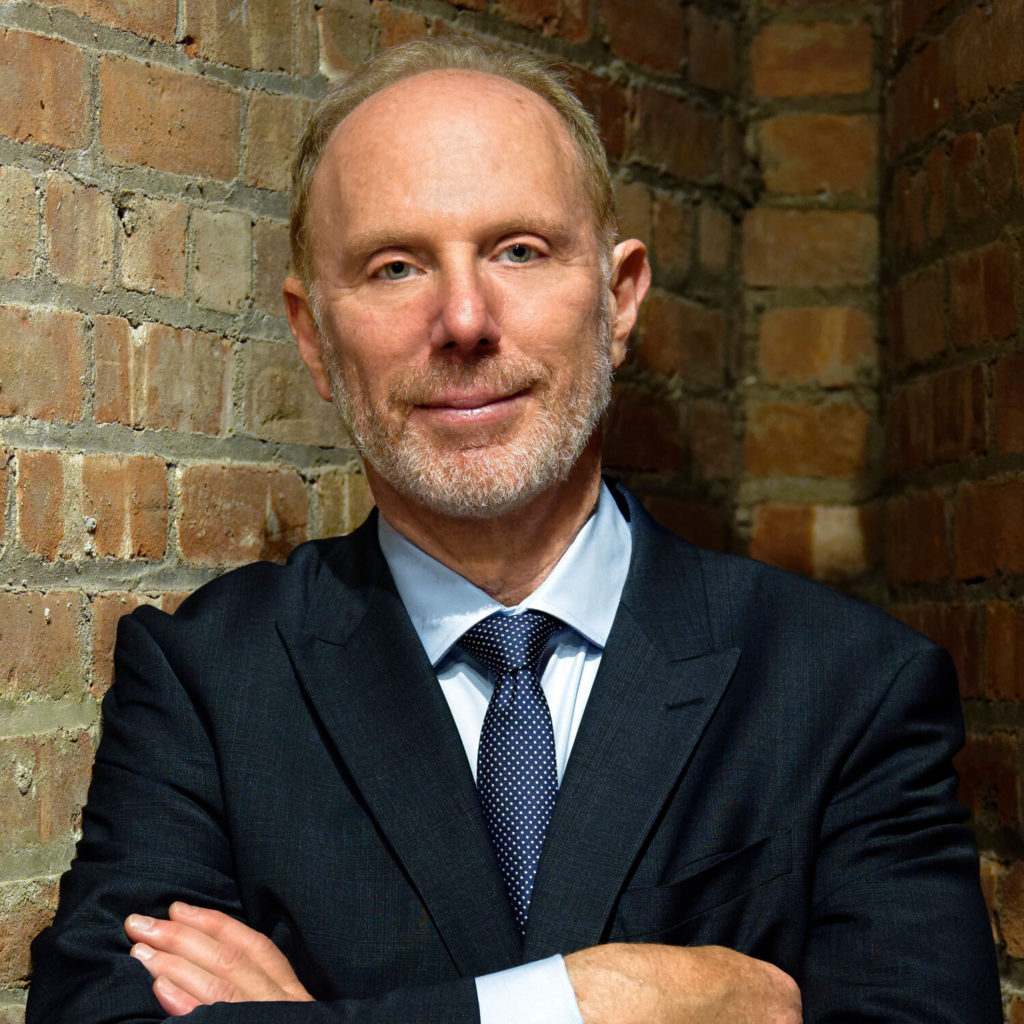
Dr. Kenneth Rosenberg, a psychiatrist who specializes in addiction medicine, is also an acclaimed documentarian who explores issues on mental illness. A Peabody Award-winning producer on the subject of mental health, Dr. Rosenberg has produced six films for HBO and three for PBS. Dr. Rosenberg’s most recent documentary, Bedlam, was first screened in 2019 at the Sundance Film Festival.
The film, five years in the making, is a scorching denouncement of mental healthcare in our nation. Dr. Rosenberg wrote, directed, and produced the film, after first penning his book Bedlam: An Intimate Journey Into America’s Mental Health Crisis.
In an interview with NAMI-Santa Clara County, Dr. Rosenberg discusses the film and his mental health advocacy. This interview has been edited for content and length. You can listen to the interview in its entirety on YouTube: https://youtu.be/Oe65NYuLhHM
MM: The film turned into quite a personal journey for you.
KR: Yes. My sister, who lived and died with schizophrenia, inspired me to become a psychiatrist and inspired me to make this film. Initially I hadn’t planned on telling my personal story. It’s funny because even my closest friends hadn’t heard the stories I wrote about in my book Bedlam. It was a way to share that.
MM: Were there any surprises in the filming? Did it turn out as you expected?
KR: All of it was a surprise. The beautiful thing about documentary film making is it’s a very organic process. You want to have a sense of where you are going and some command of the story and topic, but not overly script it. I had no idea at the start I would be following people and families in the story for five years. I thought I’d make the film in the emergency room and that would be that. But I quickly discovered I could not tell the story by getting glimpses of madness. When I started editing the film, I knew I needed to be in the story. As a viewer, you need some sense of why I am doing this. I felt I owed it to the viewer to tell them.
MM: One of the family stories you followed, Patrisse Cullors and her brother, Monty, evolved into quite a story in its own right.
KR: Yes, I thought I was filming a guy in an emergency room and his sister. I had no idea his sister would become one of the most important mental health advocates in the world. Patrisse Cullors was one of the cofounders of Black Lives Matter. She was an up-and-coming activist when I met her. She said, “I’m an activist.” I said, “Good, I hope something comes of it, and I’m going to film you regardless.” And, lo and behold, she became so important and powerful in our community.
MM: When I watched the film, I had no idea that the Black Lives Matter movement stemmed out of mental illness. Of course, it’s evolved but that is a remarkable genesis.
KR: I don’t think people realize that. The intersection between civil rights for people of color and mental illness is very much intertwined. I don’t think it’s a coincidence that she founded BLM. It was predicated on her brother, who was a black man, who in her words was abused and beaten by Los Angeles County Sheriff’s Deputies. I think the civil rights community is keenly aware of the discrimination that all people—white, black, brown—with mental illness face.
MM: This segues into the criminalization of mental illness. This point of view has become entrenched in our society. How do we reverse this way of thinking?
KR: L.A. passed Measure J and that means 10 percent of the funding to L.A. will be used to divert people out of the criminal justice system into a more therapeutic social service system, which will directly affect people with mental illness. I think it’s those efforts to work people away from incarceration toward treatment.
MM: Do you think there is a sea change happening in mental health care?
KK: No question there is a sea change going on but it’s slow. The issue I raise in the film relates to medicines when I talk about a 90 percent decline in new drugs for schizophrenia over the past 15 years. We know medicines for schizophrenia, bipolar depression, severe psychiatric disorders save lives. But they are also deeply flawed. We know the gold standard for treating bipolar disorder is lithium, which was developed serendipitously by an Australian psychiatrist in 1949.
Here we are 70 years later and lithium is still the gold standard. That’s not good. For cancer and HIV we have drugs just a couple of years old. We don’t have 70-year-old drugs as the mainstay. We need the pharmaceutical companies to invest in new medication in schizophrenia and psychopharmacology. The focus at the National Institute of Health (NIH) and Substance Abuse and Mental Health Services Administration (SAMHSA) has been on first-episode psychosis, because they don’t know what to do once the disease moves into its formative, progressive stage. The medicines are lifesaving but they are inadequate, and people don’t like taking them because of the side effects. I feel it’s my duty to prescribe them, but I also feel it’s my public duty to call them out and say we don’t have the medicines we need and the research we need, and that really needs to change.
MM: How do we achieve these changes?
KR: The first thing we have to do is not “rely on the kindness of strangers.” Big pharma is beholden to their stockholders not our relatives. We have to march. We have to demand better. We have to let everyone know we are not going to take this and not going to depend on our politicians or presidents to change this. We have to say we are not voting for people unless they make this a priority. The way we made cancer and HIV priorities. I think it’s activism and advocacy that are going to change this. The ‘90s was the decade of the brain, although we have yet to see that translate into something that can help people.
MM: The one positive caused by COVID-19 looks to be greater openness about mental illness due to various pandemic-related triggers including feelings of isolation and anxiety, especially among high school and college students. Perhaps we’ve been given a door into removing stigma from the mental illness conversation.
KR: I couldn’t agree with you more. I think the conversation is changing. When I was a young man, my family wouldn’t talk about my sister’s serious mental illness. Today I think things are different. Kids get medicines during school breaks and recess. It’s not such a secret anymore, and we can thank NAMI for its people talking more openly about taking medications and needing therapy.
MM: With the 988 hotline launching in 2022, mental health crisis calls will have a dedicated call center. Hopefully, this will result in better outcomes for those in mental health crisis, taking frontline police intervention out of the equation.
KR: I think you are right. Police are best in a mental health crisis when they are not police, and judges are best when they are not judges. As my dear friend Dr. E. Fuller Torrey (founder of the Treatment Advocacy Center) says, the judges are now social workers and the therapists are the police.
MM: You point out in Bedlam that our current mental health crisis has been years in the making, not solely attributable to one event or politician. How do we right this wrong?
KR: It’s important to understand that we didn’t deinstitutionalize people. What we did instead was trans-deinstitutionalize people. We took them from one institution, the asylums, to the streets and jails. So now our largest mental health institutions are the country’s three largest jails (Los Angeles County Jail, Rikers Island Jail in New York, and Cook County Jail in Chicago). Now there’s talk about new solutions. Building back some new hospitals, which we should. Building back community mental health centers, which we should have. But I think at the end of the day what we need for serious mental illness is not simply a brick-and-mortar solution. It’s not building a new building to today and twenty years later someone will say let’s tear that dreadful place down. What we need are better treatments, because at the end of the day it’s not about the institutions, the buildings, grounds, or whether we have too many or too few windows—the illness has to be treated medically in a proper way.
MM: Are you more optimist, even in our current climate?
KR: There is much reason for optimism. We have seen a lot of legislation passed. Seen a lot of awareness. And the reception for Bedlam has been a real demonstration of people wanting to have the conversation. We were lucky enough to be in the Sundance Film Festival. But what I was most surprised about was that we were the first film at Sundance about serious mental illness. I think that marks a sea change. I think everyone is paying attention to the issue.
NOTE: Both the documentary Bedlam and the book Bedlam: An Intimate Journey Into America’s Mental Health Crisis are available on Amazon Prime.










































